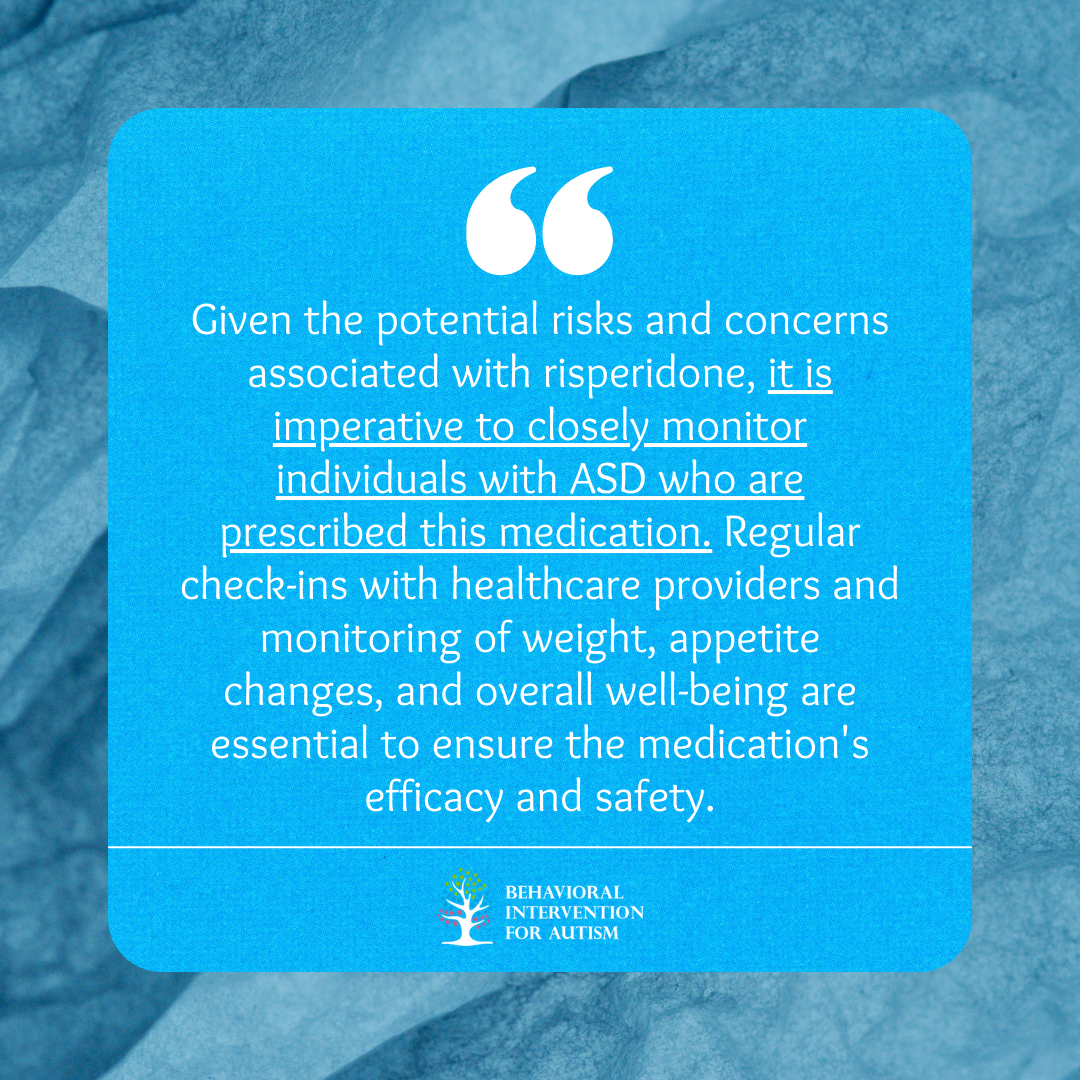
Table of Contents
Risperidone, classified as an atypical antipsychotic medication, has demonstrated efficacy in treating various aspects of autism spectrum disorder (ASD) in clinical trials. Its effectiveness extends to addressing both core and non-core symptoms associated with ASD.
Positive Effects of Risperidone
The positive effects of risperidone in treating autism spectrum disorder are evident in symptom improvement and cognitive enhancement.
Symptom Improvement
- Risperidone treatment has demonstrated significant improvements in various autism symptoms, including reducing hyperactivity, inappropriate speech, stereotype behavior, and lethargy compared to a placebo. This highlights the effectiveness of risperidone in addressing behavioral challenges commonly associated with autism.
- FDA-approved for autism treatment, risperidone has shown a substantial decrease in irritability in a significant percentage of children within a relatively short duration. Notably, 69% of children aged 5-17 experienced reduced irritability within eight weeks of treatment, compared to only 12% in the placebo group. Moreover, many children who responded positively to risperidone continued to exhibit improvement even six months later, indicating its sustained benefits.
- Research studies have supported the notion that risperidone treatment does not result in functional deficits for individuals with autism spectrum disorder. Instead, it has shown improvements across multiple cognitive domains, suggesting its potential in enhancing overall cognitive functioning in individuals with autism. Additionally, risperidone has been well-tolerated, further emphasizing its viability as a treatment option for autism.
Cognitive Enhancement
- Studies have revealed promising outcomes regarding the use of risperidone in addressing core symptoms of autism, such as social communication difficulties and repetitive behaviors. By targeting these fundamental aspects of autism, risperidone has shown efficacy in improving the overall quality of life for individuals on the autism spectrum.
- Risperidone has also been effective in treating both core and non-core symptoms of autism spectrum disorder in controlled trials. Specifically, it has demonstrated efficacy in managing behavioral symptoms like irritability in children, contributing to an overall reduction in challenging behaviors associated with autism.
Understanding the positive effects of risperidone on symptom management and cognitive enhancement in individuals with autism spectrum disorder helps caregivers and individuals make informed treatment decisions. It’s important to weigh the potential benefits of risperidone against its risks and side effects to ensure personalized care.

Side Effects of Risperidone
Risperidone, used as a treatment for autism, can cause various side effects that may differ in severity. Common side effects include weight gain, tardive dyskinesia, and changes in prolactin levels.
Weight Gain
One of the most frequently reported side effects of risperidone is weight gain, particularly in children. Studies have shown that children treated with risperidone experienced an average weight gain of 5-6 pounds. In a 2005 study, some children displayed an even higher average weight gain of 11 pounds. Alongside weight gain, mild fatigue and tremors were observed in some individuals. Monitoring weight changes is crucial during risperidone treatment to address any potential concerns related to obesity and its associated health risks.
Tardive Dyskinesia
Tardive dyskinesia is a serious side effect linked to the use of risperidone. This condition is characterized by involuntary movements, especially in the face and limbs. While tardive dyskinesia is less common with risperidone compared to other antipsychotic medications, there have been documented cases, including one involving a 13-year-old boy with autism. It is essential to monitor individuals taking risperidone for any signs of abnormal movements and seek medical attention if tardive dyskinesia symptoms are observed.
Prolactin Levels
Risperidone has been associated with elevated levels of prolactin, a hormone that plays a role in lactation and reproductive health. Increased prolactin levels can lead to side effects such as breast enlargement, nipple discharge, and gynecomastia, the growth of breast tissue in boys and men. Several legal cases have been filed against Johnson & Johnson by individuals who developed gynecomastia after taking risperidone. Monitoring prolactin levels and addressing any hormonal imbalances promptly are crucial in managing these side effects.
Being informed about the potential side effects of risperidone is essential for caregivers and individuals considering this medication for autism treatment. Close monitoring, proactive management, and open communication with healthcare providers are vital in ensuring the safe and effective use of risperidone while minimizing the risks associated with its side effects.
Risks and Concerns
Risperidone for individuals with autism spectrum disorder (ASD) carries potential risks, including metabolic effects and health concerns. It’s crucial to monitor and manage these aspects carefully when using this medication.
Metabolic Effects
A recent study published in the Journal of the American Academy of Child and Adolescent Psychiatry highlighted the metabolic effects of risperidone in children with ASD. The research revealed that risperidone is linked to unhealthy weight gain, significantly increasing the risk for insulin resistance, metabolic syndrome, diabetes, heart disease, and liver disease.
One of the key findings of the study was that the weight gain induced by risperidone is often attributed to increased appetite and food intake. During a 24-week trial period, some children experienced weight gains of up to 15 percent above their baseline weight. Additionally, about three-quarters of the participants reported an increase in appetite, which preceded the significant weight gain.
In light of these metabolic issues, parents and caregivers are strongly advised to provide clear dietary guidance and weight management strategies to children prescribed risperidone. It is crucial to initiate discussions on healthy eating habits and food choices early in the treatment process. Removing high-calorie and unhealthy food options from the home, such as soda and sweet snacks, can help prevent rapid weight gain associated with risperidone.
Health Risks
Apart from the metabolic effects, risperidone use in individuals with ASD can pose additional health risks. While the study did not find an increase in adverse effects like male breast enlargement or obsessive-compulsive behaviors, it is essential to remain vigilant about potential health implications when using this medication.

Parents and caregivers are encouraged to maintain open communication with treating clinicians to address any concerns or observations regarding the use of risperidone. Engaging in discussions about potential side effects and seeking professional guidance can help mitigate risks and enhance the overall care and management of individuals with ASD receiving risperidone treatment.
Recommendations for Caregivers
For caregivers of individuals with autism who are considering or currently using risperidone as part of their treatment plan, it is essential to provide comprehensive support and guidance. This includes dietary recommendations and regular consultation and monitoring to ensure the well-being of the individual.
Dietary Guidance
Parents and caregivers are strongly advised to pay close attention to the dietary habits of individuals prescribed risperidone, especially children. It is crucial to initiate discussions on diet and food choices early in the treatment process. Eliminating sugary drinks, high-calorie snacks, and similar items from the household can help prevent rapid weight gain, as risperidone is known to increase appetite.
Maintaining a balanced and nutritious diet is key to managing the potential weight gain associated with risperidone treatment. Encouraging the consumption of fruits, vegetables, whole grains, and lean proteins can support overall health and well-being. It is also important to monitor portion sizes and avoid excessive consumption of processed foods high in sugars and fats.
Consultation and Monitoring
Regular consultation with healthcare professionals is crucial for caregivers managing risperidone treatment in individuals with autism. It is essential to maintain open communication with the treating clinician and discuss any concerns or observations related to the medication’s effects.
If caregivers have specific concerns about potential side effects such as metabolic issues or behavioral changes, they should seek guidance from the healthcare provider promptly. While risperidone may lead to rapid weight gain, studies have not shown an increase in adverse effects such as male breast enlargement or obsessive-compulsive behaviors. However, it is important for caregivers to stay vigilant and address any emerging issues with the healthcare team for appropriate management.
Caregivers can support individuals with autism on risperidone by following dietary recommendations, maintaining regular consultations, and monitoring progress. Open communication, proactive management, and healthy lifestyle choices are key to ensuring comprehensive care and well-being throughout the treatment process.

Discover How We Can Help Manage Side Effects with ABA Therapy
Risperidone can sometimes help manage certain behaviors in individuals with autism, but it’s important to be aware of the potential side effects, such as weight gain, sleep disturbances, and changes in appetite. If your loved one is experiencing these issues, seeking additional support can make a significant difference. Our ABA programs in Florida focus on addressing the individual’s specific needs and providing effective strategies that can reduce dependence on medication over time. Behavioral Intervention For Autism is committed to offering high-quality, personalized therapy that works alongside other treatments to promote well-being. Contact us today to explore how our services can provide lasting support for you and your family.
- 9 Common Obsessions of Children With Autism You Should Know - February 25, 2025
- What is Neurodiversity? A Guide to Embracing Differences - February 25, 2025
- Understanding Hyperfocus in Autism: What It Means and Why It Happens - February 25, 2025
